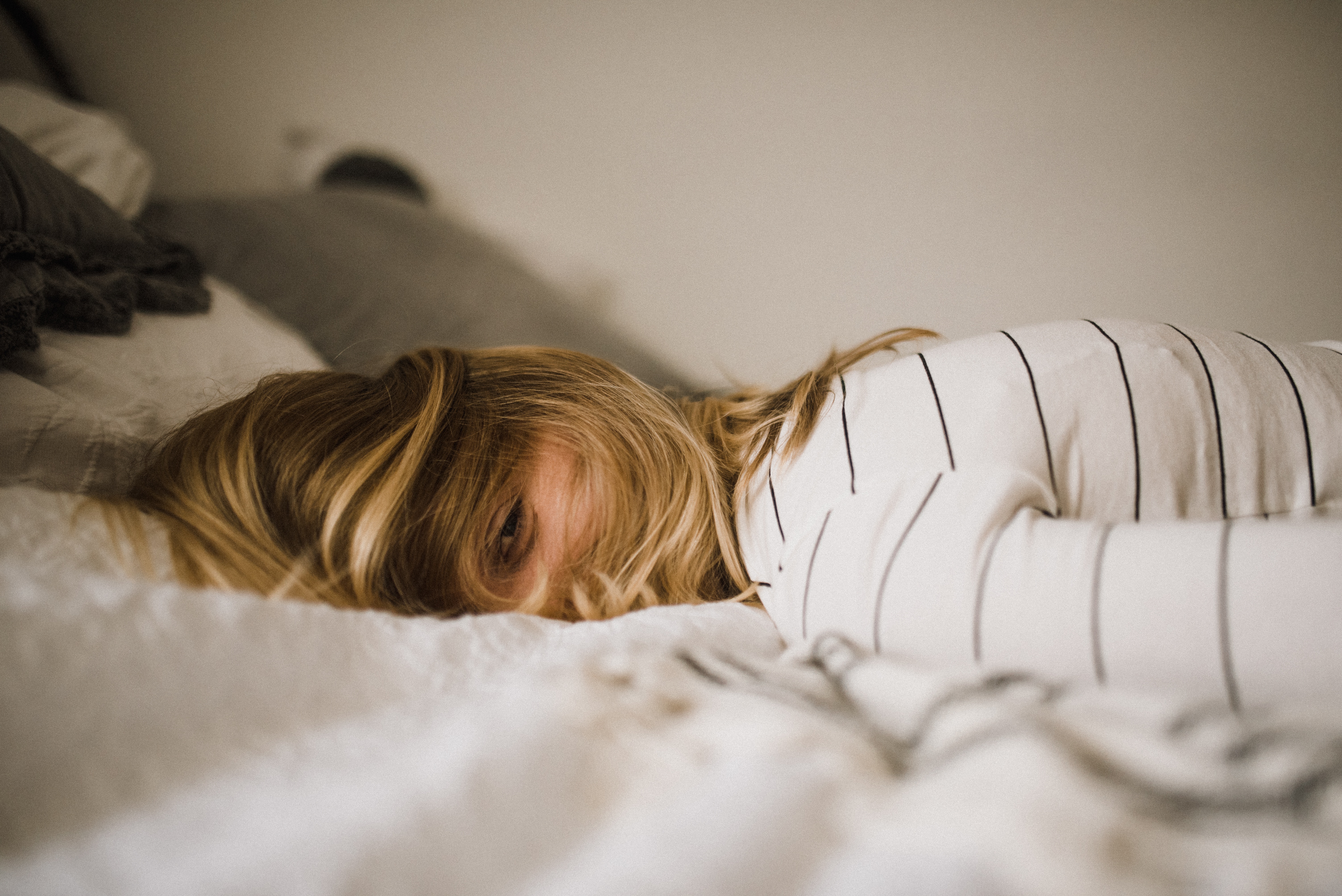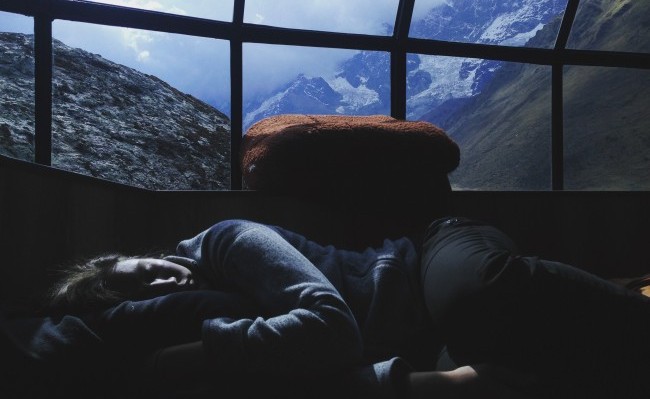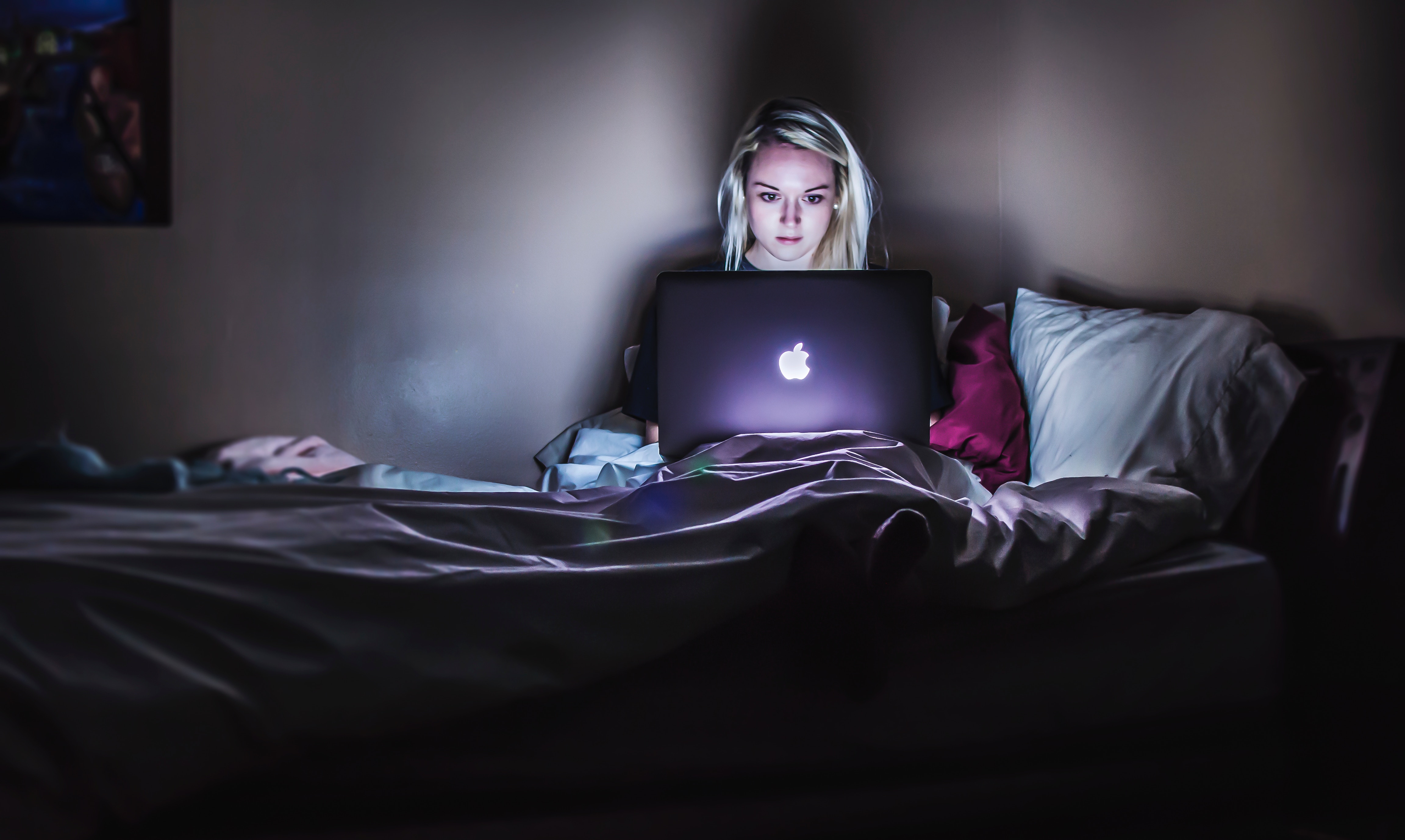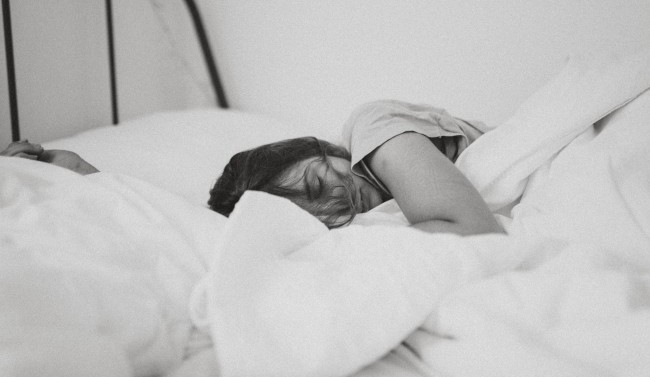
It’s 3AM and I’m writing an article that’s due in five hours. As I attempt to capture the exact flavor of a chicken nugget I tried days earlier, I’m filled with irrational anger. I’m angry at myself for not starting earlier, and chicken nuggets for existing, and my editor for daring to give me work. In these wee morning hours, when procrastination has forced me to stay up all night, I’m angry at the whole world.
Why? Because I should be asleep. Resting. Getting some shut eye.
In my 20s, sleep was a cumulative game. It was less about eight hours a night and more about bargaining back and forth to make up for any loss. If I stayed up until it was time for class, I could sleep all afternoon the next day. It all evened out, in the long run. It was a fast and loose approach to a night of z’s that felt acceptable at 22 — go hard, recover, and bounce back.
But hitting 28 or so messes with your ability to make up for sleep debt. Suddenly, losing a night of sleep comes with consequences that don’t seem to be erased simply by “catching up” over the weekend. A couple of crappy (or alternatively extra fun) nights and you’re sure to feel it for days. Everything requires a massive effort. The world is grayer.
Knowing this about myself, I’ve tried to make sleep a priority these past few years. Then, seven months ago, I had a baby. It changed everything. Because having a kid is intense and beautiful and utterly insane. And sleep? That’s the first thing to go. The first few months with a baby involve the kind of horrific sleep torture you would only wish on Satan himself (and the woman at a party last weekend who said to me, “How funny! To see a woman holding a baby and a glass of wine at the same time!”).
Sure, as the months go on, it gets better. Babies do sleep eventually. But my sleep seems to have forever changed. For the first time in my life, I’m a light sleeper, jumping at every sound. Living in the breathless, constant fear that every noise means an apocalyptic event, aka “the baby is up.” For young parents, the baby waking up is at least as bad as the supervolcano under Yellowstone going off and killing us all. Probably worse. So while I am mostly getting an okay amount of sleep again, 5-7 hours on the weeknights, and maybe 8-9 on the weekend, it’s not good sleep. It’s not the relaxing, luxuriating-under-the-covers quality sleep that I was used to.
Which all goes to explain why, when my editor called me and proposed an experiment, one in which I would get too much sleep. I couldn’t believe my luck.
“What do you think about trying to sleep 12 hours a night for a week?” he asked. “Hello? Allison?”
I must’ve dropped the phone as I sprinted toward my bed. By the time Steve gave up on getting an official answer out of me I was already horizontal, hard at work. Finally, for the first time in months, I was being given an excuse to prioritize sleep. And I was going to take it.

For a long time, research has shown that a lack of sleep has serious detrimental consequences to our lives. We all know that, but looking at it together, the information paints a pretty bleak picture. We’re in an epidemic of sleep deprivation in this country. In 2016, the U.S. Centers for Disease Control and Prevention did their first study of America’s sleep habits/duration and found that 34.8 percent of adults were sleeping less than seven hours a night.
That’s not good. Sleep deprivation increases the risk of type 2 diabetes, cancer, and high blood pressure. It also shrinks and ages your brain up to 3-5 years, increases your risk of dementia, and lowers your immune system, leaving you more susceptible to getting sick. And it kills. Drowsiness causes 6,000 fatal car accidents a year.
Basically, it feels like every bad thing you can think of is tied to not getting enough sleep. Lower sex drive? Yep. Weight gain? Absolutely. Premature aging? That too.
So, the baseline is that too little sleep is terrible. But what about going the opposite direction? What if you sleep longer than the recommended 8 hours? Well, research is a little murkier there. Researchers and doctors tend to agree that oversleeping regularly, that is over 9 hours a night consistently, can be indicative of poor health. But often it’s not the oversleeping causing the problem but rather a red flag that something else is going on. The question we had was, could purposely sleeping an excessive amount over a short period of time have benefits?
There’s some research that supports the theory that occasional oversleeping might be valuable. One Stanford study found that excessive sleep could improve sports performances. Researchers had basketball players sleep at least 10 hours a day, well over the recommended amount, for 5-7 weeks. If they didn’t get 10 hours in a row at night, they had to make up the hours with a day nap.
What they found was exciting. Players ran faster sprints and increased their free throw percentage by an average of nine percent. An excessive amount of sleep made them better at their sport, so it would surely make me better at managing my life, right?
It was an experiment I was all too willing to try. The rule was 12 hours of sleep a night. And even though I (repeatedly) read a lot of much smarter and better-educated professionals than me say that no healthy person should be sleeping 12 hours a night, I still didn’t really buy it. 12 hours sounded perfect.

The first night I had some logistics to work out. I knew I had to be up at 7:30 the next morning to take over baby duty when my partner left for work. So the first hurdle was realizing how early I’d have to go to bed to make this all work. Specifically, that I’d have to go to bed at 7:30PM. Not surprisingly, this proved very difficult. It gives basically no non-working waking hours. Night one, I rushed around like a maniac putting the baby down and eating a quick meal before finishing up some work stuff. There just were not enough hours between 5:30 and 7:30PM.
I didn’t manage to lay down until 8:30. Still, I thought, “This is going to be sweet. Going to bed this early? Paradise.”
I crawled under the covers and waited for the ecstasy of early sleep to overtake me. And waited. And waited. But I couldn’t turn my brain off. I changed positions. I tried breathing exercises. I told myself to stop thinking about everything I had to do the next day, which you know, made me think even more frantically about all the things I had to do the next day.
Eventually, I drifted off. But I didn’t stay asleep. Suddenly, I was forced to be hyper-aware of how many times I wake up in a night. Turns out it’s a lot. At 1AM I needed a glass of water. At 2:30AM I went to the bathroom, and I couldn’t fall back asleep because I was nervous it was too close to when I’d need to get up for the day. It wasn’t, obviously, but when I checked the time on my phone, I also ended up scrolling through my email. Once I started really paying attention, I realized I had also developed some pretty poor sleep habits.
The next day, despite having gone to bed three hours earlier than usual, I had to drink two cups of coffee. That night I swore I’d ace it but a puking dog foiled my plans. It was quite a scene — the opposite of restful. So far, the whole experiment was off to a shaky start.

The next day, my editor called to see how it was going. And since I had slept very little the night before, I was in that cool state of sleeplessness that makes you super paranoid. Somehow, I worried, he knew that I wasn’t getting the 12 hours I had insisted I could pull off so easily. That had to be why he was calling.
“How’s it going,” he said in a voice that I was pretty sure was accusatory, but, looking back, was clearly just friendly.
“Fine, fine. Great. Awesome,” I said trying to sell it while also glancing around the house to see if he had put a camera in a plant. “I love sleeping 12 hours.”
“Okay,” he said. “Just making sure. You have to actually do it, you know. Or it won’t work.”
“I am doing it,” I said, “now let me go, I have to be in bed in three hours.”
My editor may have been on to me (even though I was verrrrrry convincing), but the conversation only strengthened my resolve to make this work. So, I decided, “Hey! Basketball study rules. If I can’t get 12 hours during nighttime, I just have to nap! The goal is 12 hours in a 24 hour period.”
Around noon the next day when I thought, “I am tired,” I took a nap. Yes, I had work to do. But I also had sleep to do. So I got into bed. Right in the middle of my workday. I felt, slightly embarrassed, like a total slacker. But I did it. And guess what? It. Was. Glorious.
I woke up after two hours — no alarm — feeling unbelievably refreshed. Normally, had I not napped, I would have slogged through six hours of half work. All of it just okay. But even though I napped for two hours, I accomplished more. It was kind of a revelation. Can a person nap in a work day and end up being more productive? Is that allowed?
The next few nights were easier. At least, there was significantly less dog vomit. I went to bed insanely early, and I slept. But though I was falling asleep easier, it was still tough to stay asleep for 12 hours. I think part of it was that I was waking up less in the middle of the night. Going to bed early with no TV, no phone, and staying well hydrated, was… well… better. I was sleeping more soundly, less anxiously. And when I started to do that, I started to wake up earlier naturally. And because I was up earlier naturally, I stopped drinking coffee.
I felt better in my days. When I gave myself the permission to sleep longer, and then nap WHENEVER I WANTED with no restrictions, I felt recharged. I was listening and responding to my body. And I felt better about myself, too.

The final night of the experiment, I had some things I needed to get done. They weren’t urgent articles, but I still felt that pressure. “I should stay up,” I thought. But then, I realized I had an excuse. It was 9 pm and assignment or not, I was ready for bed.
So I went.
“Want to watch John Oliver?” My husband asked.
“Nope,” I said, kissing him goodnight and pulling covers snugly around my chin. 10 hours later, I woke up — without an alarm — and was ready to start my day. It was the best day of work I’ve had in months.
I’m not going to be sleeping 12 hours a night again any time soon. I don’t even think I want to. But what this experiment taught me is that sleep is a priority. It has to be. And while I’ve had to put it on the back burner a lot in the last year, it’s time to refocus. Let it be an integral part of my physical and mental health.
Rest isn’t something you can just put off again and again. I need to make it an obligation and meet it like any other commitment in my life. I can give myself permission to put that need first. There is always going to be pressure. There’s not going to be a time on the horizon when life is just easy, and I can “catch up” on sleep. Where there aren’t any people who need something from me, or when I have no deadlines or responsibilities. Bottom line: No one else is going to prioritize my rest unless I make it a priority.
“Yeah, there are things to get done,” I plan on telling myself before bed from now on. “But, most of the time, those things can wait for me to get some sleep.” Maybe not 12 hours. But a solid eight, at least. Maybe even nine.






